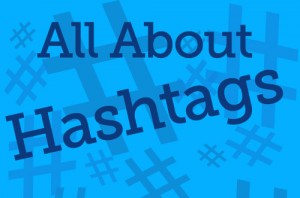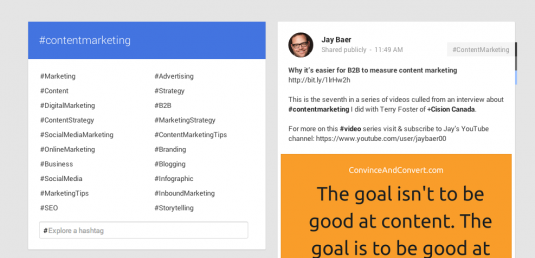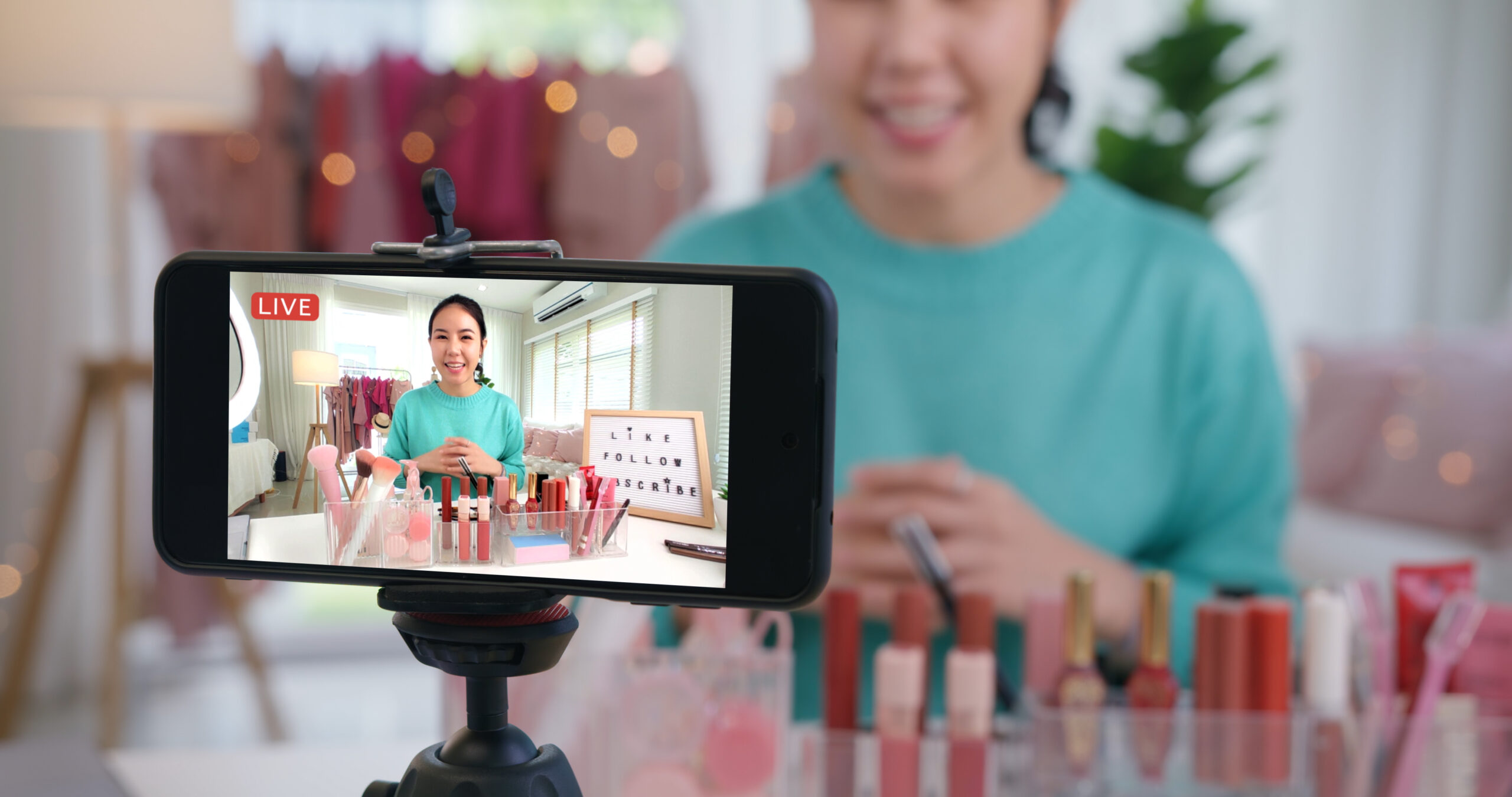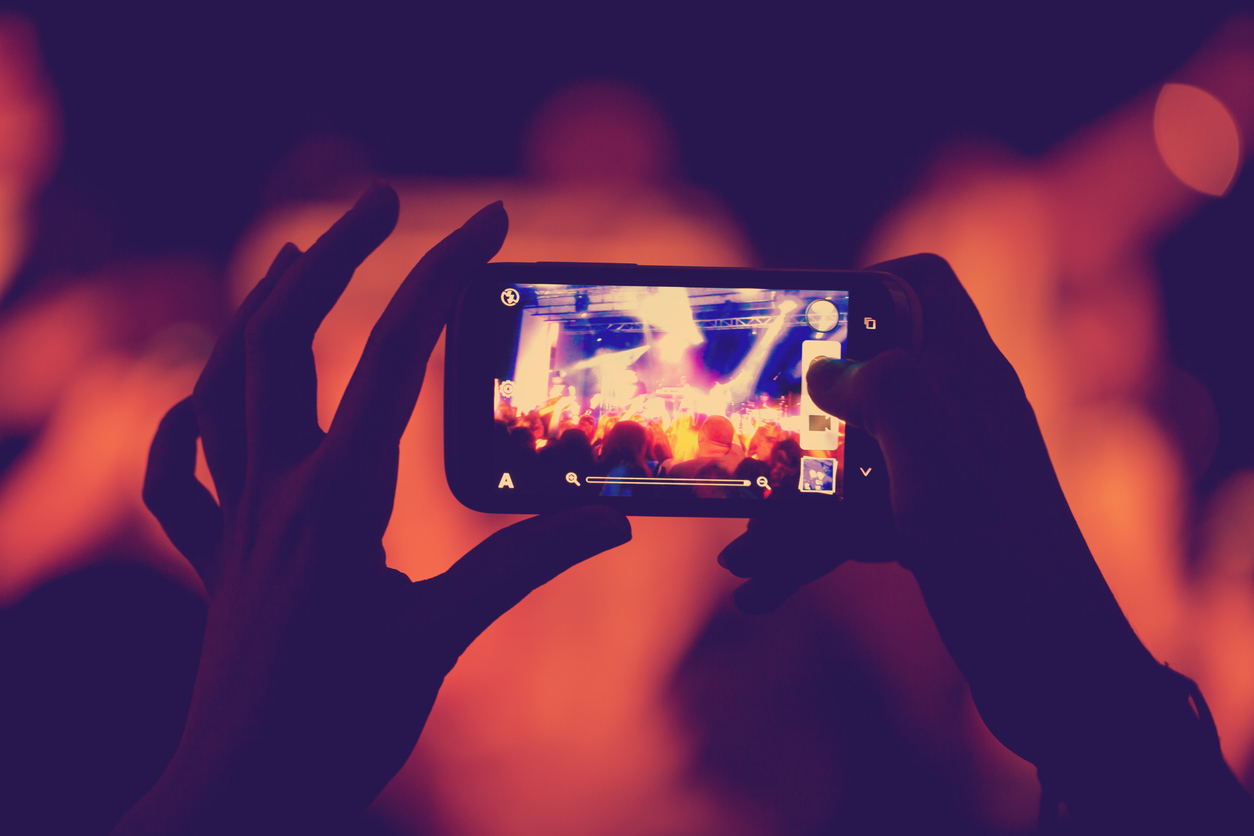All About Hashtags
 Hashtags can seem a strange and elusive beast to anyone who hasn’t used them or doesn’t get their purpose. They’re used carelessly and badly across the web, which means that they can be a stumbling block for novice social players. We’re here to help; this guide helps you understand the value of hashtags, their differences from platform to platform and how to use them.
Hashtags can seem a strange and elusive beast to anyone who hasn’t used them or doesn’t get their purpose. They’re used carelessly and badly across the web, which means that they can be a stumbling block for novice social players. We’re here to help; this guide helps you understand the value of hashtags, their differences from platform to platform and how to use them.
Twitter, as the originator of the hashtag, is a great place to start. Use hashtags to unify conversations, brand your business and events and categorize tweets to help users find things more easily.
So, why are hashtags helpful? I’ll use EVG as an example. As a digital marketing firm, we have a few hashtags that we use consistently. When we use #contentmarketing, we consistently insert ourselves into the conversation about content. This gets us out there to other content marketers. The same idea goes for #socialmediamarketing. But there are branded hashtags that we’ve used as well.

During Sochi 2014, we tweeted about several articles relating to the games and hashtagged #Sochi2014. Our CEO will be speaking at Content Marketing World in September, so we use #CMWorld to tweet about it.
A quick list of Twitter hashtag tips:
- Use relevant, strategic, carefully chosen hashtags
- Don’t hashtag generic words (#love #play #weekend #fun)
- Don’t use more than 2 hashtags per tweet (tweets that use more drop 17% in engagement)
- Play along with Twitter trends and trending conversations
Hashtags connect users, and this is especially true for Instagram. They’re great for branding companies, events and contests. Users also take advantage of them when looking for others to follow or while browsing Instagram.
Hashtags work to form communities in Instagram. When I say communities, I don’t mean like Google Plus. I mean a community of people who discover others with similar/the same interests via the platform. An example is the #vscocam community. Vscocam is a photo editing app popular among the Instagram crowd. On my personal Instagram, when I hashtag #vscocam, my comments and likes go up. These people are serious about photography, and I find myself perusing the #vscocam tag to finding new people to follow.
The same general rules from Twitter apply to Instagram, with perhaps a little more leniency. Use hashtags that relate to the niche that you’re trying to break into (#vscocam, #yeahTHATgreenville, #contentmarketing, etc.). Use branded hashtags (#throwbackthursday, #CMWorld).
A quick list of Instagram hashtag tips:
- Chose your hashtags carefully
- Don’t hashtag generic words (#love #play #weekend #fun)
- Use anywhere from one to five hashtags per post
- Find other users via hashtags and use them to interact with others
Google Plus
Using hashtags on Google Plus is similar to Twitter: Use them to start, find and join conversations. You can search for a hashtag on Google Plus and see related hashtags, which can be a useful feature.
But Google Plus takes hashtags to a new level, with the program suggesting and auto-creating hashtags for your posts. Google Plus identifies main keywords and converts them into hashtags (this needs to be enabled in your settings, which you can find here).
When searching Google Plus, a series of related hashtags is shown to the user. Any hashtag can earn the “related hashtag” status—so long as it is shared more than once and fairly recently. That means that Google Plus users create the hashtag database and establish what tags are important/related. User-generated search results? Yes, please.

A quick list of Google Plus hashtag tips:
- Choose hashtags that have a following and are commonly used
- Don’t hashtag generic words (#love #play #weekend #fun)
- Stick with one to three hashtags per post
- Keep an eye on auto-created hashtags—Google Plus doesn’t always pick the right words
Hashtags on Facebook were doomed to fail. Not only was Facebook late to the party, but privacy settings (and the amount of private information usually stored on Facebook) prevent hashtags from being of much use.
Additionally, posts with hashtags actually have less viral reach. Save hashtags for your other platforms and use Facebook without them.
A quick list of Facebook hashtag tips:
- Don’t use them
How do I know if my hashtags are effective?
One way to analyze effectiveness is to keep an eye on your stats—after you’ve implemented a well-thought-out hashtag strategy, are your statistics changing? Another is A/B testing.
There are also analytics tools available that can help determine the effectiveness of hashtags. The Social Media Examiner discusses some options, many of which can be used across different platforms.
Have you had success with any hashtag analytics? Share in the comments!
Vanessa Levin-Pompetzki – Digital Media Coordinator



